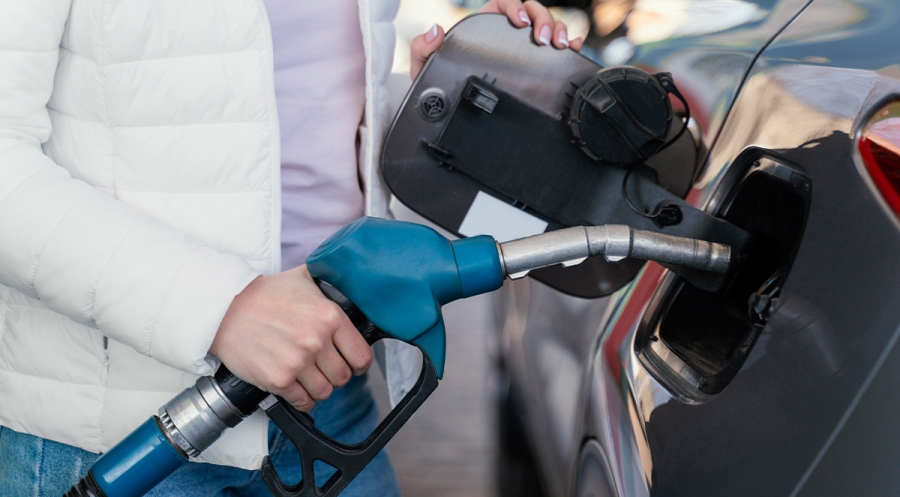Regular vs. Premium Gas
There is a distinct difference between regular and premium gasoline. Regular gas has an octane rating of 87, while your premium options generally have an octane rating between 91-93.
The octane rating is a measure of the compression fuel can withstand before detonating. A higher number means it can handle higher pressure and narrows the window in which it will fire.
The difference between those numbers may seem like a slight difference, but depending on your car, it can make a substantial change in how your car's engine performs.
When to Use Premium
Unless your vehicle has a requirement or recommendation to use premium gas established by the carmaker, you won't see any benefits from filling up your tank with a premium option. You will most likely see this requirement on performance vehicles or turbocharged vehicles. Those engines have higher compression ratios and varied valve and ignition timings that benefit from the octane increase.
You might think the higher octane will increase performance, increase fuel economy, or help keep the engine clean. It won’t cause engine damage, but if your engine hasn’t been manufactured to take advantage of the higher octane, you are just wasting money.
On the flip side, if your carmaker has premium listed as required, don’t use regular gas as a way to save money.
High-performance and sports car systems come specially calibrated for the higher octane, and using regular can cause knocking. This knock occurs when there is a mistimed ignition of the air-fuel mixture and can cause severe damage to pistons and cylinder linings.
Engines are expensive to repair, so cutting corners on premium gas can cost you more in the long run.
Is Premium Right if Recommended?
We mentioned premium gas could be required or recommended. If you fall into the latter, don’t worry about using regular gas in the engine. It won’t cause damage.
However, you might notice a performance boost or better fuel economy from filling up with premium gas. It is up to you to determine if the difference in engine performance is substantial enough to warrant the increased cost at the pump.
Other Options
Regular and premium gasoline aren’t the only selections readily available to consumers at the pump. If you are concerned about engine efficiency and your vehicle does not recommend or require premium octane levels, you might want to consider the use of mid-grade or “Top Tier” fuel options.
Mid-Grade Gasoline
Just like it sounds, mid-grade gasoline falls somewhere in between regular and premium, with a common octane rating of 89. The majority of cars operate fine at regular or premium levels, so this mid-tier is generally the least used gas type. However, a few modern vehicles do recommend it for a boost in performance.
The Top-Tier Standard
In the past, premium gas not only came with a higher octane rating, but often exclusively included additives that helped the engine burn fuel more cleanly. That is no longer the case.
The EPA has since mandated that all gas, regular and up, contain certain additive detergents to prevent fuel injector clogging and keep your engine running smooth, clean, and free of carbon deposits that build up over time within engine fuel systems. While the EPA has set a minimum specification for detergents in gas, there is also a voluntary higher standard.
Most oil companies (Shell, ExxonMobil, Chevron, etc.) have adopted this Top Tier classification and offer it regularly at their stations. And it is more than a marketing ploy.
While swapping from regular to premium won’t benefit your engine, opting at least occasionally for Top Tier can improve engine performance and reduce the need for costly repairs as you put more miles on the vehicle.
Gas Maintenance
Gas tanks, fuel lines, and internal engines aren’t areas of your car that are easily serviced and fixed at home. It is vital to make sure the gas you are using is appropriate for the vehicle to prevent damage.
If you do notice knocking or a steep drop in performance, that is a sign that something has gone wrong, and you should have your vehicle serviced and have a fuel injection cleaning. Leaving issues too long can turn minor damage into expensive repairs.
Sometimes getting into a repair shop can take a few days. You can try stepping up a fuel grade to midgrade or a Top Tier selection to minimize knocking in the interim. If you fill up with regular gas, consider adding fuel system cleaning to your list of routine car maintenance.
Fuel System and Other Routine Automotive Maintenance in Goldsboro, NC
Located in Goldsboro, NC, Retro Lube Oil Change is a fast and affordable full-service maintenance and automotive repair shop that can help keep your vehicle running better and longer. A clean fuel system can help improve fuel economy, acceleration, and performance while eliminating hard starts, hesitation, and stalling.
Let us help keep you and your vehicle on the move. If you are due for an oil change, fuel injection cleaning, a tire rotation or other regular maintenance, contact us or bring your car by the shop today.
